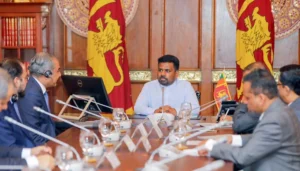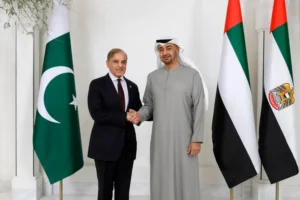Pakistan Embassy in Brussels Hosts Seminar to Mark Youm-e-Istehsal, Condemns Indian Actions in Kashmir

Brussels, Derya Soysal: On the solemn occasion of the sixth anniversary of the revocation of Jammu and Kashmir’s special autonomous status, the Embassy of Pakistan in Brussels hosted a seminar to mark Youm-e-Istehsal — the Day of Exploitation. The event drew the participation of diplomats, scholars, human rights activists, and members of the European medias such as EUREFLECT.
In his keynote address, Ambassador Rahim Hayat Qureshi delivered a powerful statement condemning the Indian government’s unilateral and unconstitutional actions of August 5, 2019. Describing the date as a “dark chapter in the history of occupied Jammu and Kashmir,” the Ambassador asserted that India’s decision to revoke Article 370 of its Constitution not only violated international law and UN Security Council resolutions but also constituted a grave attack on the political, social, and cultural identity of the Kashmiri people.
“By stripping the region of its special status, India trampled upon the Kashmiris’ autonomy, identity, and fundamental rights,” Ambassador Qureshi stated. “Six years on, the Modi government continues to implement a demographic engineering project aimed at turning the indigenous Muslim population into a minority in their own homeland.”
The Ambassador decried this ongoing strategy as a deliberate and coercive form of settler colonialism rooted in ethnic discrimination — a policy designed to erode the Kashmiri people’s inalienable right to self-determination. He emphasized that despite a relentless campaign of oppression, surveillance, and military siege, the Kashmiri people remain resolute in their struggle for justice and dignity.
Ambassador Qureshi also drew attention to a recent European Parliament report highlighting the alarming rise in transnational repression, pointing out its direct relevance to India’s tactics against Kashmiri activists abroad. The report documented various forms of intimidation, including digital surveillance, misuse of INTERPOL mechanisms, harassment of exiled dissidents, and threats against their families — all of which mirror the tools used by Indian authorities to silence dissent beyond its borders.
“This is no longer a regional issue,” the Ambassador warned. “The international community must recognize this as a global human rights crisis. The time has come to treat India’s conduct not as an internal matter, but as a serious challenge to the universal values of freedom, justice, and human dignity.”
He reiterated that sustainable peace in South Asia hinges upon a just resolution of the Kashmir conflict in accordance with UN resolutions and the aspirations of the Kashmiri people. “No amount of force can extinguish the legitimate voice of a people fighting for their freedom,” he said.
The Ambassador concluded by paying tribute to the resilience and sacrifice of the Kashmiri people and reaffirmed Pakistan’s unwavering commitment to their cause. “Pakistan will continue to stand by the people of Kashmir politically, morally, and diplomatically — until they achieve their rightful destiny: the right to self-determination.”
The event also featured remarks from other distinguished speakers, including Syed Asad Rizvi, Minister Customs at the Embassy of Pakistan, who described the opportunity to speak on such an occasion as an honor. “I thank everybody in the embassy for organizing this important gathering,” he said. “Today we mark the sixth year since one of the darkest chapters in the history of Jammu and Kashmir.”
Finally, the President Pakistan Press Club, Imran Saqip, Minister Customs Syed Faraz Hussain Zaid, Press Consellor Sagheer Wattoo also highlighted the human rights abuses committed by India in the Kashmir region.
The Chairman of Kashmir Council Europe (KCEU), Ali Raza Syed, concluded his speech by saying that “all Kashmiris love Pakistan.“
The seminar concluded with a moment of silence in honor of the victims of repression in Jammu and Kashmir and a renewed call for international solidarity.


